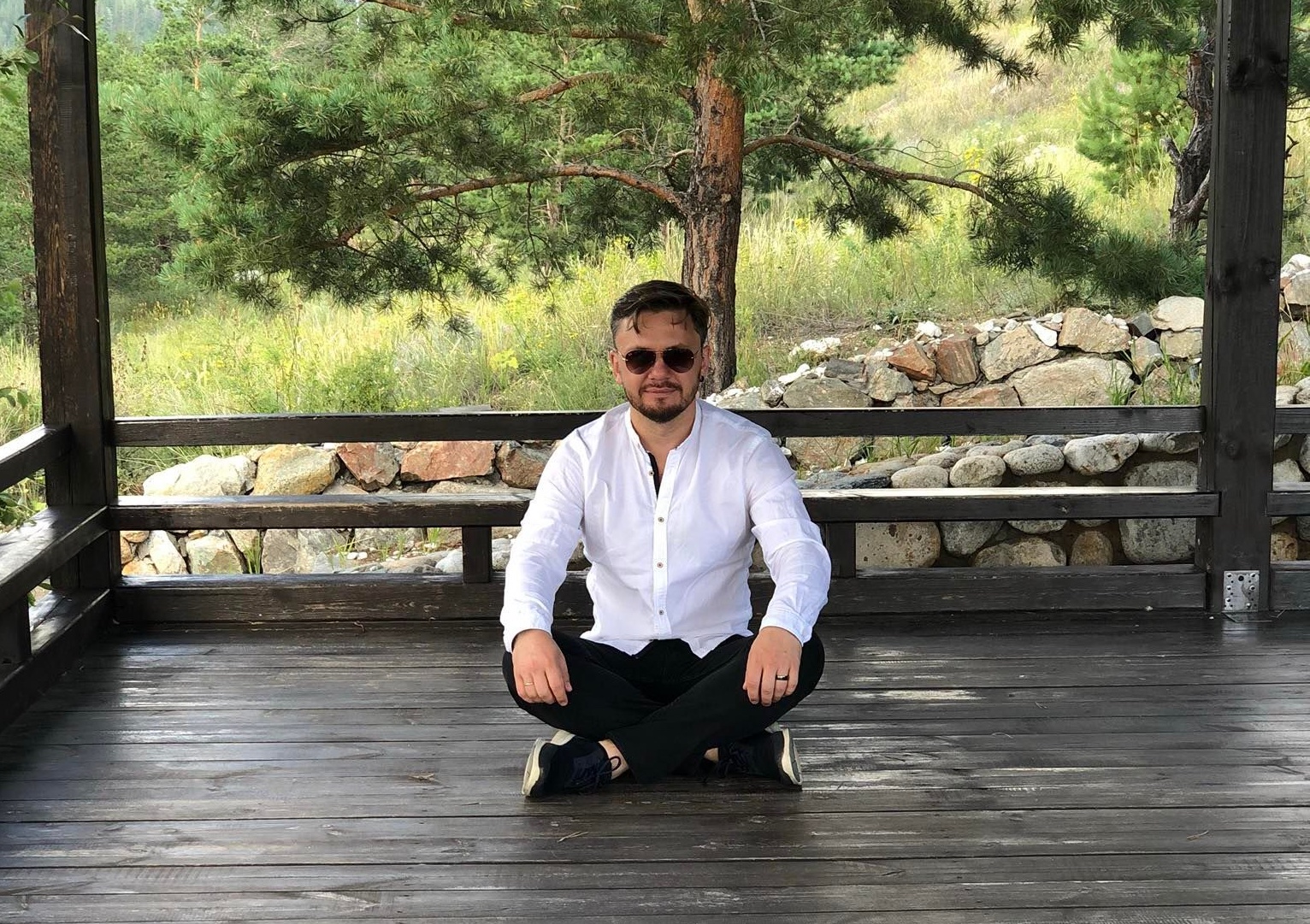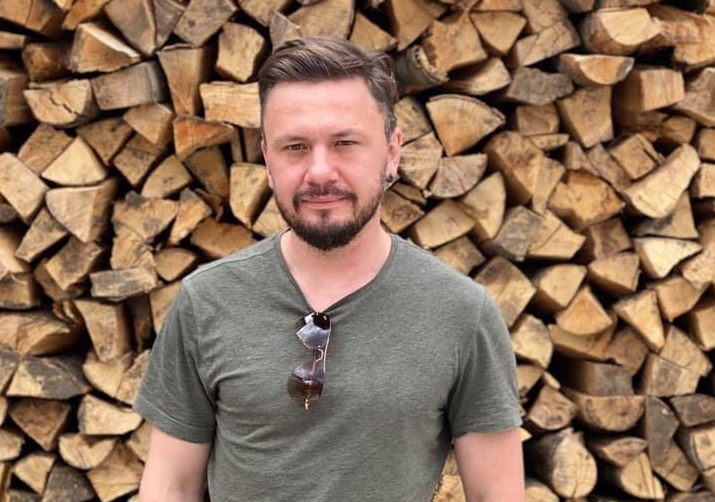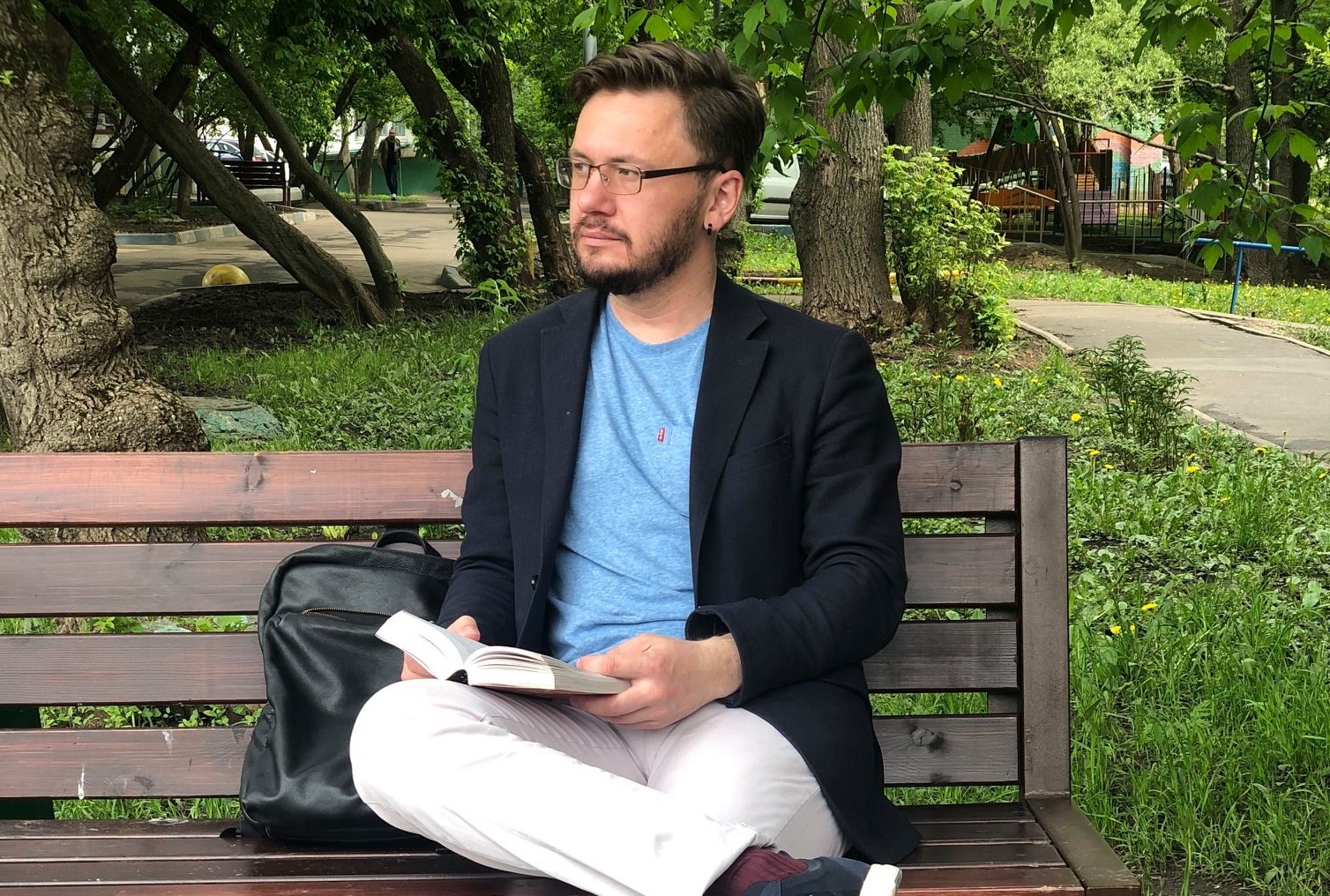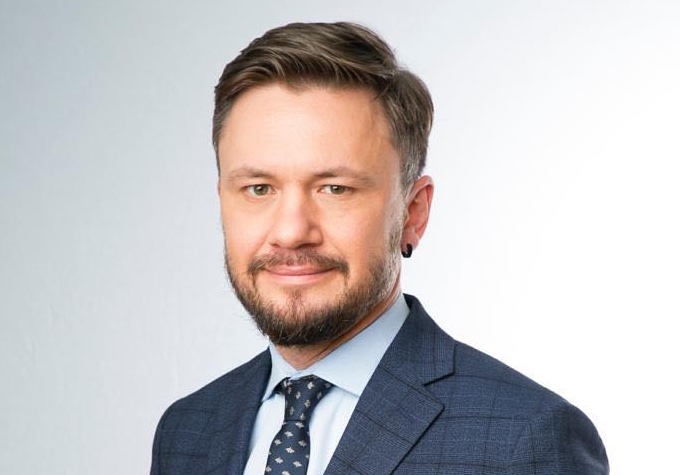'I Quit My Consulting Job Because I Needed Something More Tangible'

This past September, Rosatom announced Russia’s plans to build a gigafactory — the lithium-ion battery factory to be housed by the Baltic Nuclear Power Plant. Tasked with this new project is Rosatom’s daughter RENERA. Its CEO, Emin Askerov, hold a bachelor’s degree in finance from ICEF HSE. In his interview, Emin shares how it was like to be one of ICEF’s first graduates, how Rosatom is promoting green path development, and why switching to electric transport is inevitable.
You are a member of ICEF’s first class. Didn’t the idea of joining what was yet to be tried out sound a bit of a risk to you?
I spent my high school years at Brighton International School. My plan was to prepare for studying at a British university, namely, the London School of Economics. My exam results earned me a place on as many as five programmes, but none of them was at LSE. My friend, who I studied together with in England, said there was a programme that LSE was delivering in Russia jointly with HSE, and I decided to give it a try. I spent that summer doing the preparatory courses and got enrolled in September. My parents were supportive of my choice. They highly encouraged the idea of doing an international degree. It was my conscious, and independent, decision to enroll in ICEF. Besides, studying in Russia, as compared to the cost of living and studying in London, meant a considerable saving for our family budget.
How did HSE differ from the Western schools? You certainly had something to compare it to.
I didn’t notice anything different. The learning format was pretty much like in the school I attended for three years before. I think I had it easier than others because I was aware of the approach and the responsibility, and I valued teachers’ trust with students. To give one example, most of the people in my class were new to writing essays. I knew how to write them and I wrote them well. When you are a student in London, you do a lot of independent learning we called mini-studies.
At ICEF, I was glad to find myself in an environment that was exactly like the one at LSE
ICEF had professors from abroad and prominent domestic scholars. All courses were being delivered in English. I was amazed at the quality of teaching not only hard sciences – mathematics, statistics, etc. – but also humanities. In the international system, the humanities are an indispensable part of economics programmes.
What also made things easier for me was my advanced English language skills. Besides, the advanced course in economics that I did in England made my first year at ICEF quite easy. On the other hand, unlike the guys who studied in Russia, I wasn’t good at math, and it did take some effort to catch up.
Why didn’t you start a banking job after graduation?
Initially, like all my classmates, I did think of a banking job. And I was looking to do a banking internship. I underwent one as a senior undergraduate, at one of the international banks, but I chose not to return. It was absolutely okay at that bank, but my ambition was to be in the stock markets. Being a clerk didn’t suit me, and it took quite some time before I found a suitable position.
About Emin Askerov
Earned his bachelor’s from ICEF in 2001. In 2010, he started his AKARI company (an energy management consulting provider) and served as its CEO until 2012. In 2013, Emin joined Rosatom as Director of Development and International OTEC and was in charge of Rosatom’s Wind Energy strategy since 2016. Emin currently serves as CEO at RENERA (formerly Cathodic Materials LLC until 2019), Rosatom’s industry integrator for energy storage systems. He is an active contributor to promoting the market of lithium-ion batteries in Russia.
Even though the international diploma was a thing of prestige, it wasn’t the first thing the Russian employers looked at. They were more interested in candidate’s experience than brand name school. It was 2001. The market had not yet recovered from the crisis, so finance wasn’t an easy sector employment-wise. I know how difficult it was for the guys of the first class to get a job. With many of them, the path to success was through extremely hard work. Their incredible efforts had paved the way to the industry for the subsequent classes of ICEF.
How did your energy career start for you?
It started quite early for me, at S&P consulting company, which was my first employer and where I was tasked with conducting management audit of Lenenergo company. My next job was at the ‘Institute of City Economics’ Foundation, which specialized on municipal management, public utilities, etc. I had worked there for almost seven years and became quite knowledgeable about energy consumption, housing and utilities, and their economic side. My job involved learning the ins and outs of electric networks, effluent treatment, heat supply, and everything there was to know about energy as an operating industry.

The Institute of City Economics is a research organization that acts as an adviser to the government and consults local municipalities on attracting investment and interacting with banks. My department consulted on tariff regulation for natural monopolies, and as someone with a background in economics I felt it was just something that came naturally to me. I really delved into the subject – the regulatory and legal frameworks. The one-year legal studies course and philosophy, that we studied at ICEF, came very much in handy, as did my knowledge of the theory of firm, natural monopolies, transaction costs and financial models. They were just perfect fit for my job.
Do government-run organizations have many employees with background in finance and economics?
Not many, I’m afraid. The knowledge of economics and social phenomena would be the first thing that government-run companies seek in candidates. While financial industry experts deal more with trading in options on futures, their decision-making process taking place at corporate level, the jobs at regulatory bodies require mostly the understanding of micro- and macroeconomic processes, not the ability to apply banking tools. With years of working for stated-owned organizations as a consultant, I understand how important it is for their employees to have a global vision of the processes – geopolitical and economic processes – and the knowledge of mechanics of the world.
Given that philosophy offers knowledge of collective consciousness and public behavior, why do you think it is given so little attention in the economics programmes?
This is rather a downside of the Russian economics programmes. Unlike them, Western universities, and especially liberal arts colleges, have humanities as a very important part of economics education.
Philosophy is to the brain what workout is to sportsman. It helps with thinking skills
Philosophy facilitates our ability to reflect on different topics, consider ideas from different perspectives, identify logical inconsistencies and work them out. It makes us sound more convincing. Philosophy gives tools for more effective decision analysis – in very much the way we test hypotheses using economic models.
After earning my bachelor’s degree, I thought about doing a master’s at the London School of Economics, but I started a family and that changed my plans. And because philosophy seemed to be the most challenging part of the admission test, getting into the masters at LSE for students with no experience of international environment was very difficult. One international professor we all raved about at ICEF was Amos Witztum. A philosophy professor, he would explain economics without ever consulting his textbooks. Professor Witztum had the orderliness of economy sorted out in his head just perfectly, with explanations to its every paradox.
What made you start your business? Was it a useful experience for you?
I started my company after the crisis of 2008. Opportunities were emerging for startups, fueled by investors’ focus on infrastructure development. By that time, I already had a vast experience in communal infrastructure management. I participated in writing laws and guidelines. I knew everyone in the ministries and had been to many Russian cities. I hired a few people and we started working as a consulting services provider. Our clients were the private companies that sought to invest in communal services. We helped them draw up contracts, build models, and communicate with municipalities. It was an interesting time. Our staff was growing and we were being placed with interesting orders. I gained an invaluable experience, but unfortunately made very little profit. The last contract we were working on had brought me to Rosatom.

It was for a contractor of Rosatom and it involved investment analysis of a thermal power plant. Projects of this kind have a lot of problems, as always, but we managed to find some curious solutions. We teamed up with that contractor for an in-house startup that we thought might sound interesting to Rosatom. We wrote the business plan and Kiriyenko gave it a go. It landed us a six-month contract and me a demotion from CEO to analyst. But, the project fully justified itself: six months later I rose to the post of development director at a new company. When people tell me the idea of having a lower position in their employment book fills them with sheer terror, I laugh in their face. There is nothing wrong about taking a demotion if you have a clear goal.
To a conventional mind, the nuclear giant Rosatom is a complete enigma. How does it operate and what is remarkable about it?
I’ll start with strengths. Rosatom is one of those state-owned companies in Russia where things keep happening and development never stops. Rosatom is breaking into new industries. By projecting fresh ideas, not fantasies, it is making innovations a reality. All projects I’ve worked on at Rosatom have been proof of it. Rosatom currently engages in the manufacture of composite materials, system storages, and automotive catalysts, the latter being used by KamAZ. Some of its projects deal with medicine, 3D printing and petrochemistry – you wouldn’t think a state corporation as large as this might be interested in all this.
Now to the downsides. Since Rosatom is excessively bureaucratic, getting its projects going can be a hard job. I often hear colleagues at other state corporations tell me, “At least you have some room for action, we don’t.” Projects seem to be happening in spite of, not because of, the conditions here. Rosatom is huge. Your every action has to be supported by dozens of papers, and if there are foreign partners involved, each design assignment has to be agreed with the security service.
Administrative red tape can make you feel like you are beating the air, but as you get through it you learn to accept new rules of the game
You hire extra hands to deal with bureaucratic procedures and eventually get something out of it. A system like this is definitely a burden on progress. It’s like an established zen sort of thing that should be taken as it is.
Is there a way to streamline the processes at the Russian state corporations?
I don’t think there is. In his bestseller The Innovator's Dilemma, renowned economist Clayton Christensen argues that corporate performance is driven by customer behaviour. In the case of Rosatom, the main client is the state. And since the state is also its principal shareholder, Rosatom’s every process is tailored to the needs of the state. At the same time, Rosatom is working to strengthen its image as a company open to innovation. This is especially noticeable at negotiation tables, when the dressed-down people of Rosatom meet the stony-faced officials of Gazprom wearing white shirts and blue ties.
You have been in charge of Rosatom’s RENERA since 2019. Can you tell more about this company?
RENERA is my third startup within Rosatom and has been quite successful so far. In fact, it is a follow-up on what we started earlier in the field of electric power. Our production of energy storage systems, specifically lithium-ion batteries, was supposed to be started in 2011, but it is only now that I have managed to get his line of work deployed in the context of the updated environmental agenda.
Startups are being launched non-stop at Rosatom. If you know technologies and their markets, have experience of dealing with regulators and state-owned contractors, then you are more likely to see your idea materialize. On the other hand, as I said before, it’s not that simple. We had new hires in the company who quit after couple of months struggling because they weren’t issued with computers. Getting a workplace in the office implies obtaining dozen of approvals, which can become a real obstacle to many – one important detail to know about institutions as nuanced as ours.
Why are Li-ion batteries a promising technology in Russia?
Russia has no other way than join the global environmental trends. The world is changing. China, Europe, and the United States are unanimous in their choice of lithium-ion batteries as an alternative to internal combustion engine.

Li-ion batteries offer the most effective price-quality-input ratio that makes electric motor possible for mass production. Lithium-ion is flexible and versatile enough to allow you to use your electric car battery to, for example, compensate for your power network shortage. Not only does it charge while connected to a power source, it can perform many other functions. One of our portfolio companies, Enertech International, acts as a supplier of lithium-ion batteries for Aurus hybrid vehicles and for the plant in Podolsk, the latter using Li-ion batteries as a low-cost way to save electricity during peak load hours, when electricity costs are the highest.
How far are you in lithium-ion battery manufacturing in 2021?
The most important asset, we already have it – the technology that was earlier unavailable in Russia. We acquired a Korean company that has been manufacturing lithium-ion batteries for twenty years now, and in 2025 we are to start production at the Baltic NPP in Kaliningrad region. By the time sustainable transport entered the public discourse, Russia’ battery manufacturing sector was already in existence, as were the possibilities for its further development. This year has been undoubtedly a difficult one for all manufacturers that are dependent on semiconductors – the components for battery management chips. This is, however, a temporary difficulty and we will certainly get through it.
Will the size of this new factory be similar to that of Tesla gigafactory?
The gigafactory phrase was coined even before Tesla made it popular. Gigafactories produce batteries with more than 1 GWh/year capacity. As an industry, lithium-ion manufacturing is still young: in 2001, factories’ maximum capacity stood at 2 GWh and those early batteries were intended mostly for laptops and mobile phones. Now, the current capacity of 300 GWh is expected grow to 2 TWh to meet the needs of the electric transport.
The world’s environmental regulation encourages a stepwise switch to vehicles with Li-ion batteries
Some cities in Europe have introduced entry restrictions for vehicles with emissions levels inconsistent with the EU standards. We in Russia are, too, discussing regulations and requirements to stimulate elaboration of new governmental programs, which is, however, not an easy task because there exists a strong oil and gas lobby.
How is Rosatom changing in response to the environmental trends?
Of all the Russian state-owned companies, Rosatom is probably the fastest to respond. For example, two years ago we established the post of chief sustainability officer. AtomEnergoProm has issued its first green bonds, while AtomEnergoPromSbyt is now selling kilowatt-hours from our wind turbines and we at RENERA have launched the first Russian series of electric leisure karts and held races among children. Last year, our company adopted the UN Sustainable Development Goals as its core production and logistics performance criteria.

Rosatom is currently working to promote, also at the level of environmental training and outreach, its ‘green square’ concept, which is based on four low-carbon power sources – wind, water, sun and atom. We are currently launching a project to assess our carbon footprint and to work out a plan towards ultimately becoming a carbon-neutral company.
Why are government agencies an unpopular career choice among Economics majors?
Because the salaries they pay are simply indecent. Those choosing to pursue careers in the governmental agencies must have a clear goal of becoming politicians, or they must believe in public service. For a fresh graduate to say ‘yes’ to a salary which is severalfold less than the one paid by their internship provider would be simply irrational. I quit my consulting job because I needed something more tangible. I wanted to see my work yield tangible results and contribute to a cause. So far, I have contributed to the creation of two industries, one being a wind farm and the other a lithium-ion battery manufacturer. When me and my kids were driving past the Kochubeyevskaya wind farm not so long ago, it gave me great satisfaction to know it wouldn’t be there if it wasn’t for my input. This feeling was worth all the bonuses there are in IB or consulting.
Author: Sonia Spielberg